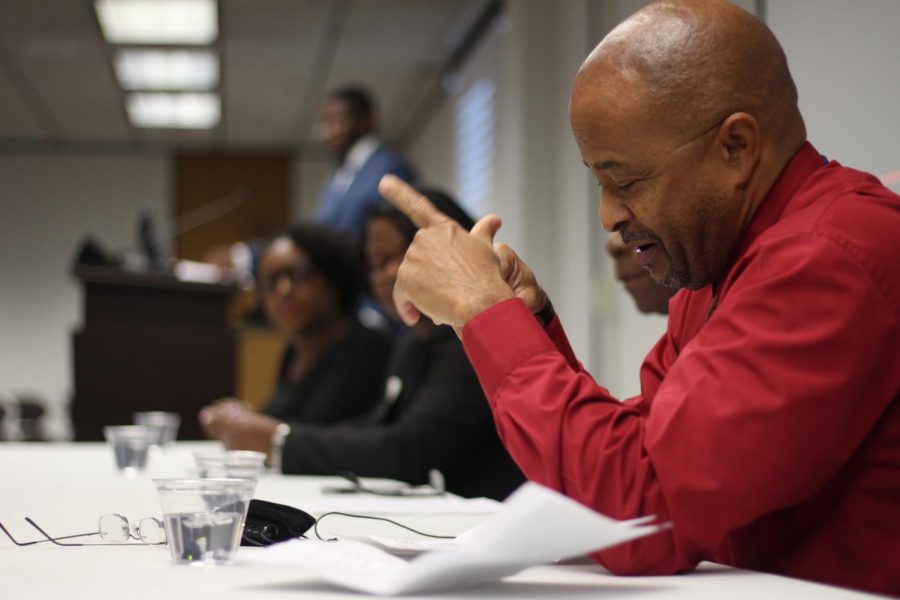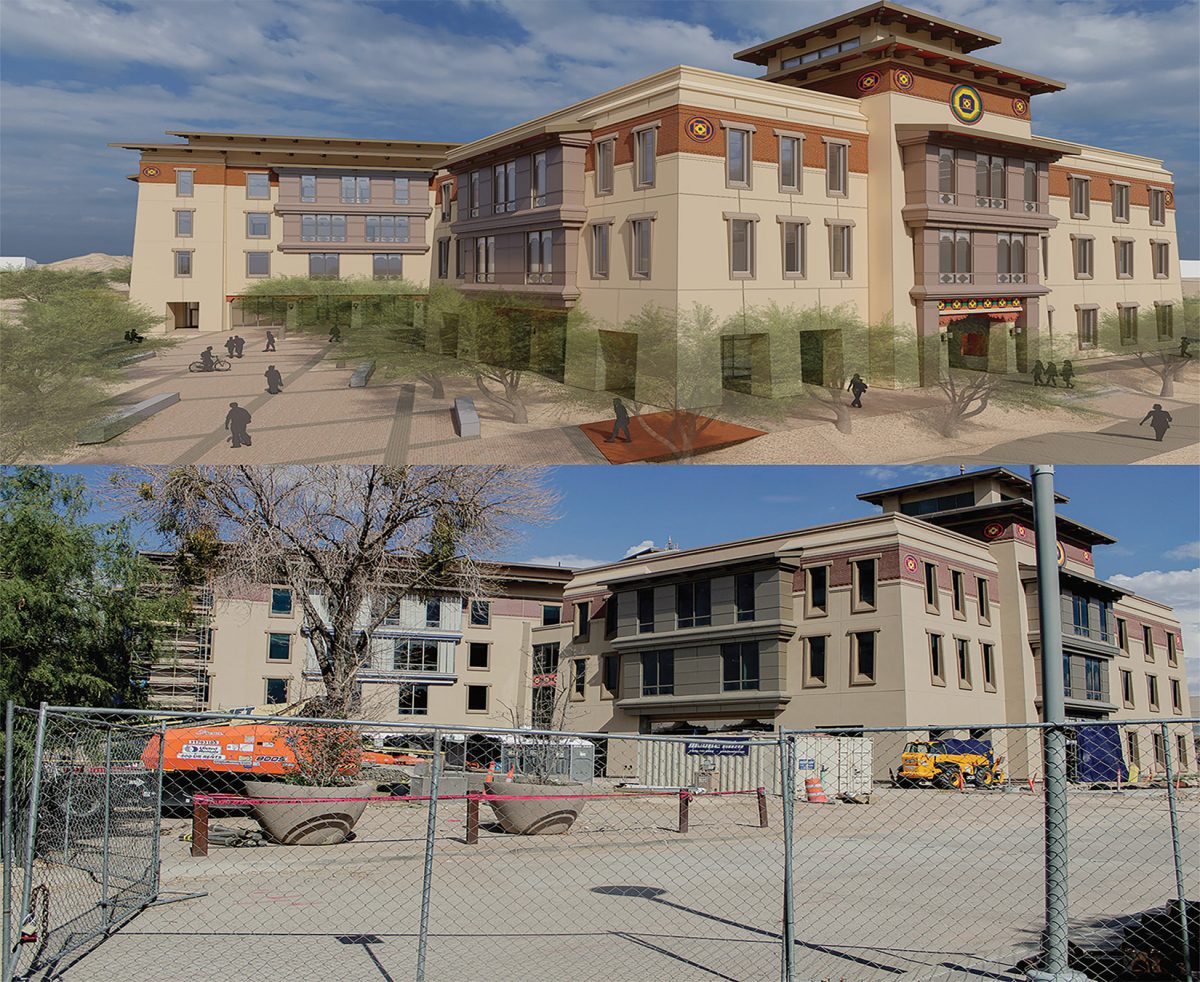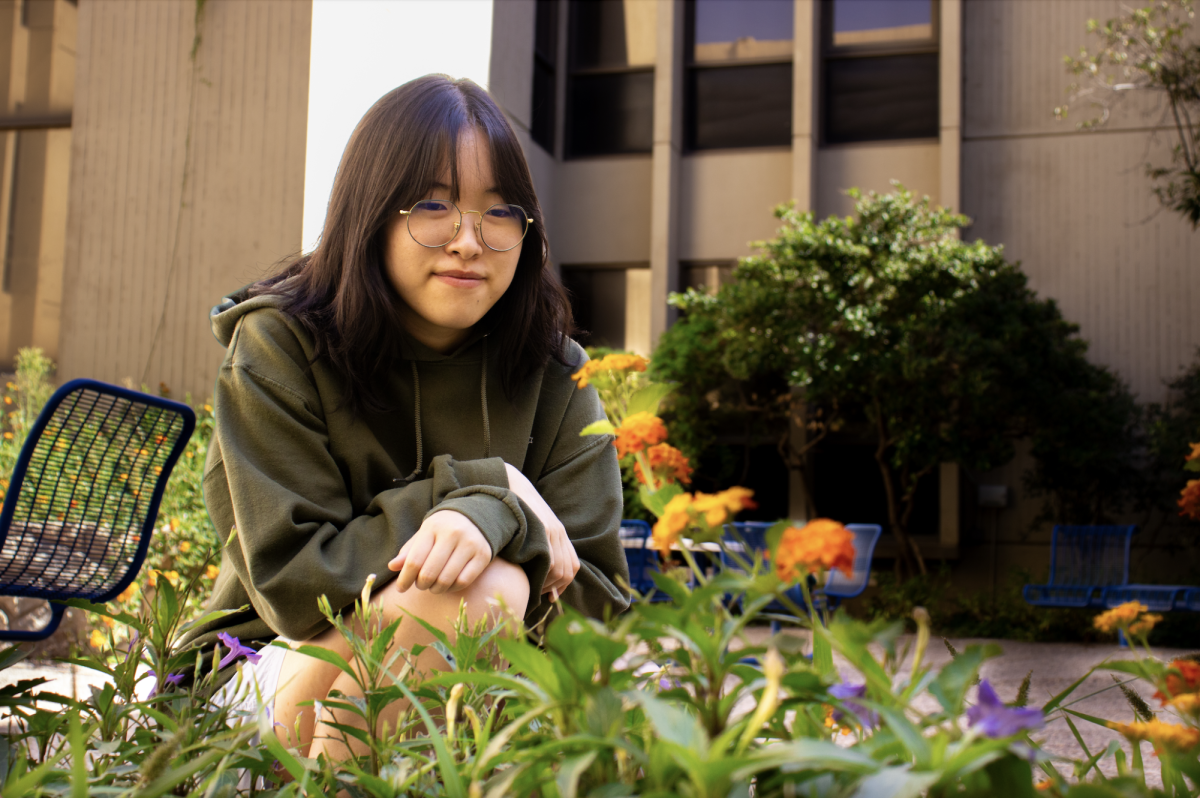Mental health experts and the Black Student Union chapter at UTEP hosted a panel that addressed mental health stigma in the black community and the ways in which people can cope with mental health problems.
The panel, called Blackout: mental health within the Black community, featured panelists Terry Williams, coordinator of the Collegiate Recovery Program at UTEP, Richard Carson, a staff psychologist with El Paso Veterans Affairs, Patrie C. Williams, a postdoctoral fellow in the Counseling and Psychological Services at UTEP, and Triva Stephens Moreno, a clinical pharmacist with El Paso Veterans Affairs.
According to the Health and Human Services Office of Minority Health, African Americans are 20 percent more likely to experience serious mental health problems than the rest of the population. Common mental health disorders among African Americans include attention deficit hyperactivity disorder, suicide among young African American men, major depression and posttraumatic stress disorder.
The panelists urged individuals in the black community to pay more attention to their family members because the lack of communication about mental health problems can be deadly.
Antton Robinson, the vice president of the BSU, said this event answered a lot of unanswered questions about mental health and the participants of this event left with valuable information that will help others.
“We (in the black community) don’t address these kinds of issues so these doctors came in today to inform us of ways to get help,” Robinson said. “This event will for sure inspire people to take actions and reduce the stigma of not speaking out.”
Stephens Moreno said people have to let their fears aside and accept what they’re going through and seek help.
“It’s hard for people to really accept that they might have a mental illness because it’s not anything they can put their hand on. And no one wants to talk about having a mental illness because of the stigma in the community,” Stephens Moreno said. “It may take a couple of weeks to recover from a mental illness, it can take up to six months to recover but educating the public about mental health and health, in general, is very important if we want to resolve this kind of issues.”
Stephens Moreno also said people have to ask questions about the kind of medications they are receiving and to not be intimidated by the white coat of a doctor.
“Ask questions, ask about the pros and cons of taking or not taking a certain kind of medication,” Stephens Moreno said. “Be open about your symptoms that way your doctor will be more aware of what’s going on, this will help you get a better treatment.”










Harold A. Maio • Nov 15, 2017 at 11:54 PM
—–a panel that addressed mental health stigma
Asserted is more accurate than “addressed”.